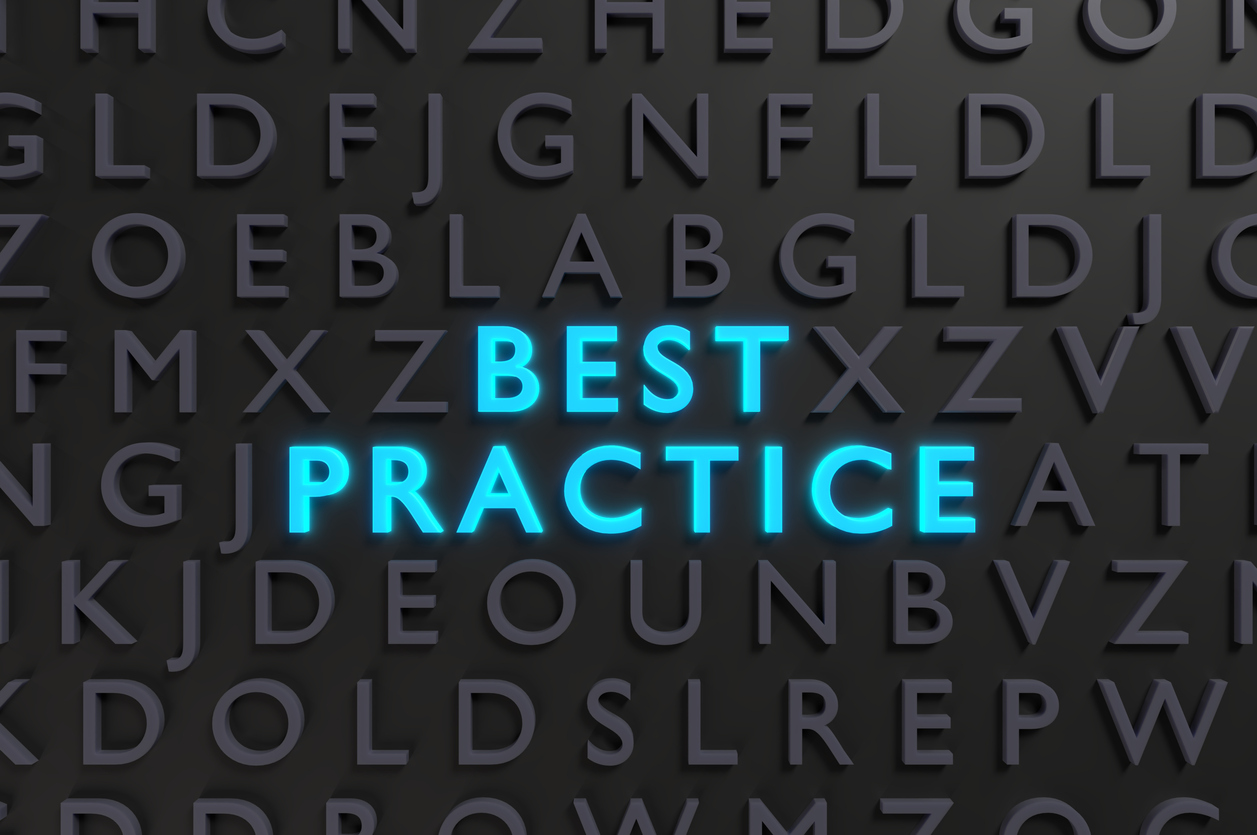"Industry best."
"Best practices.”
“Best in class.”
Here’s another often-cited quote: “You can’t argue with success.” If you want to be a high achiever and successful within your own organization, Bob Engel, C.P.M., says to look to the processes and practices used by the most successful industry leaders. He says, “In today's economic environment, doing what you've always done—even if you do it very well—is no longer acceptable. Under pressure to contain costs and produce results despite challenging circumstances, you (and many other supply chain managers) must transform rather than simply improve your operation.”
Your industry-specific role is not that different from procurement professionals within other organizations: Keep costs and overhead down, strategize delivery and set-up of large equipment, coordinate within individual departments to manage over- or under-supply. Supply chain professional Engel cites several processes that, when implemented, can help you streamline your supply chain methodology.
1. Create a “supply chain council”
This group could be you, your manager or report-to, your department heads or their representatives. The goal of this council is to manage supply chain in such a way that it meets your company’s expenditure allowance while demonstrating knowledge of and in accordance with recent healthcare regulations and laws that have any impact on procurement. At the very least, the council’s presence indicates that you take seriously the need for ongoing conversation between departments and responsibility for best supply chain practices.
2. Develop a supply chain strategy that works
Perhaps establishing a procurement specialist for every department is your plan, or maybe you prefer to keep a centralized handle on operations. What works best at your institution depends on your overall ability to strategize. “Best-in-class companies hire supply chain managers who have strong communication and relationship management skills (both internally and externally), the ability to think strategically, and a focus on value creation,” says Engel.
3. Review your processes and supply chain software
If you’ve felt the pressure to buy now and work the numbers later, you’re doing it backwards. You should be able to retrieve and compile purchasing data that gives you information about trends and usage, before you buy. If your software is difficult, maybe it’s time to upgrade or replace it with one that is more data-friendly.
4. Align with key suppliers
If at all possible, keep your suppliers to a minimum and cultivate the long-term relationship between your organization and the procurement company. By doing this, you strengthen the problem-resolution process and can develop budget improvement objectives.
5. Request JIT (just-in-time) delivery
In keeping with a par-level inventory for supplies, managing the delivery schedule for equipment helps to streamline workflow and effectively utilize storage space.
6. Develop a feedback route
Healthcare professional end users should be able to report ease-of-use and storage location problems. If your healthcare professionals are having issues with materials or equipment, they should be able to easily reach your or their procurement specialist.
7. Know your supply chain end users’ and patients’ needs
If you don’t know how something you are ordering is used, learn about it. It’s important to know about material and personnel requirements before you place the equipment order.
8. Review Acquisition Costs - Constantly.
Cost reduction due to healthcare laws and economic instability means acquisition costs need to undergo constant review, whether to rent, lease or own outright. When possible, capital equipment should be owned, but leasing options should be considered when cash flow is an issue.
9. Study the TCO (total cost of ownership)
It’s not always value-added to choose a procurement company that has the lowest bid. Factors that affect the quality and long-term cost effectiveness of healthcare equipment and materials includes:
-
Delivery timing and ease of set-up
-
End users’ levels of operation and salary
-
Environmental impacts
-
Maintenance
-
Training required
10. Utilize savings through GPO (group purchasing organization) contracts
Your supplier can give you the best price when you “buy big” and indicate your willingness to contractually agree to long-term purchasing. It’s also important to manage your contracts and understand contractual compliance by both parties. Says Engel, “Several years ago . . . a research firm asked supply managers: ‘How do you manage your company's contracts?’ Two thirds of the respondents stated, ‘We can't even find the contracts, much less manage them.’ ”
CME is the only national, direct-to-site equipment-focused distributor in the healthcare industry. We specialize in offering customized logistics solutions to help improve supply chain efficiency and cut costs. If you’re looking for a specific piece of equipment and don’t find it in our catalog, please contact us. Your account manager can research the best manufacturer, the best price and the best logistics solution. We serve all medical facilities including the government and hold a GSA contract.
About CME: CME Corp is the nation’s premier source for healthcare equipment, turnkey logistics, and biomedical services, representing 2 million+ products from more than 2,000 manufacturers.
With two corporate offices and 35+ service centers, our mission is to help healthcare facilities nationwide reduce the cost of the equipment they purchase, make their equipment specification, delivery, installation, and maintenance processes more efficient, and help them seamlessly launch, renovate and expand on schedule.




